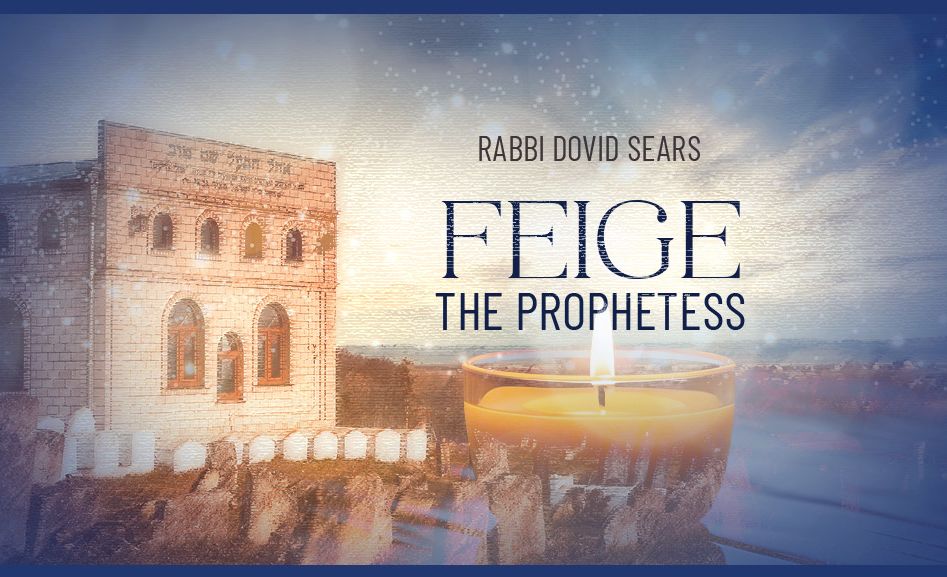
Rebbe Nachman’s Tikkun Klali
Even though the Zohar says that there are sins for which there is no tikkun (rectification), Rebbe Nachman revealed the awesome Tikkun Klali, which can repair everything!

When God told Avraham to circumcise himself, He said:
“And you shall guard my Brit (covenant), you and your descendants after you for all their generations” (Bereishit 17:9).
Because of this statement, circumcision has always been referred to as brit. Although the Torah also uses the word brit in different contexts, the most common usage refers to circumcision. What is so unique about circumcision that is referred to as a covenant, an agreement between G=d and the Jewish people?
The prophet Yeshayahu (Isaiah) (60:20) says “And your people are all tzaddikim, righteous.” The Zohar (I:93a) asks how is it possible to say that all Jews are tzaddikim when we see some are not and then answers that that they belong to the category of tzaddikim because the are circumcised and they circumcise their children.
In Likutei Moharan, Torah 23, Rebbe Nachman says that the Jews are all tzaddikim because of the brit, and Rebbe Natan says that the Rebbe told him that this means because they are circumcised.
But this Brit, this covenant between a Jew and his Creator, does not end with circumcision. In that same Likutei Moharan, Rebbe Nachman also says that every Jew who guards his brit is considered a tzaddik relative to another Jew who is not at the same level when it comes to guarding his brit. Circumcision is the first step in bringing a Jewish man into the category of “Tzaddik” and without that mitzvah he cannot relate to the truly great Tzaddikim. He must continue to guard and sanctify the mark of circumcision by avoiding misuse of that part of his body which at the time of his Brit was dedicated to purity and sanctity.
In Likutei Moharan (I:2 and I:130) Rebbe Nachman quotes the Zohar stating that the yetzer hara, the evil inclination, focuses its influence on moral issues. Someone once spoke highly of a certain Tzaddik to Rebbe Nachman. Rebbe Nachman responded, “How is he with that desire?” The Chassid replied “How can anyone know about that?” Rebbe Nachman responded, “But that is the main thing. All the other desires can easily be subdued but the true measure of a Tzaddik is to what extent he has purified himself in that desire” (Chayei Moharan, 601).
In Likutei Halachot (Hilchot Kidushin 3:3; Hilchot Nachalot 3:2), Reb Nosson writes that there are thousands and tens of thousands of levels in sanctifying one’s Brit. And although everyone should pray and strive for perfection, the first level is to observe all the laws of the Torah (written and oral) concerning matters of morality and marital relations.
The Mesilat Yesharim writes (chapter 18) that chassidut is the observance of mitzvot beyond that which is obligatory for every Jew, but a “Chassid” who loves his Creator will want to expand on these obligations in any way that will bring “nachas Ruach” (pleasure) to Him.
Rebbe Nachman (Likutei Moharan I:11) points out that there are two ways of guarding of the Brit: through refraining from the prohibitions stated in the Torah, and through sanctifying oneself beyond that. The first category (refraining from the prohibitions) is called “lower unity (yichuda tata’a)” and corresponds to Boruch Shem, Blessed is His name. The second category is called “higher unity (Yichuda Ila’a) and corresponds to Shma Yisroel, Hear O Israel.
The Torah does not expect every Jew to achieve the purity of the greatest tzaddikim. At the same time, we must realize that our level of purity need not remain static, and that we are expected to constantly continue to purify and elevate ourselves, in thought, word, and deed.
In Likutei Moharan II:48, Rebbe Nachman writes that every movement that brings a person out of physicality and closer to God is “very precious.” If a person progresses even a minute amount, in the higher world he has traversed huge distances. Rebbe Nachman illustrated this with a story (Rabbi Nachman’s Stories #16, “The Melancholy Saint”) about a Tzaddik who flew many miles in the upper worlds, but when he returned to earth, found that he was very close to his original starting point.
Since a person’s spiritual level is not static, in addition to being able to elevate ourselves, we are in danger of falling. It’s important to learn to deal with that possibility and to do everything in our power to assure that if we do fall, we will not exceed the minimal boundaries set by the Torah. At the same time, when we fall, we must never lose hope of elevating ourselves to higher levels, and even surpassing our previous levels. Very often, a decline is preparation for a significant ascent, as Rebbe Nachman and Reb Nosson often remind us in their writings.
If a person failed to break his fall in time and has transgressed clear prohibitions, he must be prepared to deal even with this. In Likutei Moharan II:12, Rebbe Nachman tells us that when one is in the lowest of depths, stuck in the mire, he has a special opportunity to find the highest levels of holiness which are hidden there – but only if he is firmly resolved to search for God.
Not only is despair pointless, it can also lead to falling to further depths. But how can anyone escape despair when he understands the seriousness of these moral transgressions? How can a person not despair when the Zohar (219b) states that repentance does not help when it comes to the sin of Er and Onan?
Rebbe Nachman states (Sichot Haran 71) that the Zohar should not be understood literally. Repentance always helps, and the main thing is not to repeat one’s wrong doing.
Rebbe Nachman declared that one can completely rectify this sin if after repenting he goes to the mikveh and then recites ten particular Psalms (16, 32, 41, 42, 59, 77, 90, 105, 137, 150) to rectify the damage of that transgression. (Earlier tzaddikim attempted to find ways to rectify this sin. See for example the Shl”a and Yesod Yosef, written by Rabbi Yosef ben Shlomo of Posen, dealing mainly with this topic. But they would not guarantee that their recommendations would completely correct the problem). Afterwards, a person should continue striving towards perfection without worrying about this episode.
These ten Psalms are known as the Tikkun Haklali. In Likutei Moharan I:29 Rabbi Nachman explained that to rectify all of a persons transgressions is very difficult, but if he can rectify the transgressions associated with the Brit, which encompasses all the other transgressions, he will thus rectify all of them. Therefore rectification of the Brit is called the general rectification – Tikkun Haklali.
In addition, Rebbe Nachman stated that these ten Psalms have a special power and declared before two witnesses that if a person recites these Psalms at his grave in Uman and donates a pruta (a tiny amount of money) to charity in Rebbe Nachman’s honor, then Rebbe Nachman will make every effort to help that person escape from the depths, no matter how deeply he had fallen.
To read the Tikkun Klali, the ten Psalms, click here. To purchase your own booklet, click here.











Tell us what you think!
Thank you for your comment!
It will be published after approval by the Editor.